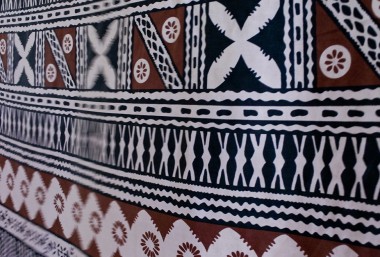The new Fijian Trade Marks Act 2021, Patents Act 2021 and Designs Act 2021 introduces some welcomed updates. It has been some time since these acts were updated, in fact 88 years for the Trade Marks Act, and these changes are expected to modernise the way trade marks, patents and designs are treated in Fiji.
In this article, we summarise the key changes to these acts and what this means for those wanting to file trade mark, patent and design applications in Fiji once it comes into force.
Trade Marks Act 2021
- The Paris Convention is to be adopted and will allow claims for convention priority. This will also ensure that Fiji is compliant with relevant international obligations for the protection of intellectual property.
- The Nice Classification system of goods and services is to be adopted, and this will avoid the current need to re-classify goods to fit the old UK based system dating from the 1930’s. This will also allow for services to be specifically covered, which is not possible at present.
- Multiple class coverage will be allowed.
- Broad definition of a sign will allow for non-traditional trade marks to be registered. It will be possible to protect things such as colours, smells, sounds and tastes in the future.
- Removal of provisions to allow for re-registration of UK trade mark registrations. This has been a useful way to secure registration in Fiji without the need for relative grounds examination, and being subject an opposition phase, but this option will be removed.
- Adoption of a 10 year renewal period, bringing Fiji into line with the international standard.
- Mandatory requirement that consent to registration be accepted from owners of relative rights. This will provide a new option when dealing with blocking registrations.
- Provisions for recognition of Geographical Indications. This will assist in bringing Fiji into line with the TRIPS Agreement.
- Clearer provisions on status of expired trade mark rights. This will address the grey area around the validity of citations based on expired trade marks and bring greater certainty.
- The onus will shift to the owner of a trade mark to prove use in non-use revocation actions, but the 5 year grace period remains.
- General update to infringement provisions, including allowing comparative advertising, honest practices and introduction of criminal provisions.
- Allowance made for future accession to Madrid Protocol and designation of Fiji under the IR system.
Patents Act 2021
- The Paris Convention is adopted, which will ensure that Fiji is compliant with relevant international obligations for patent protection. Patents granted in the United Kingdom will no longer be registrable in Fiji within three years from its date of issue. Under the new Patents Act, the Commissioner of Patents will examine patent applications.
- Notable provisions under the new Patents Act are listed below.
- A grace period of up to one year is provided for certain instances of prior disclosure.
- Priority rights will be recognised.
- Requirements for novelty, inventive step and utility are introduced, bringing the new legislation in line with international standards.
- Non-patentable subject matter includes schemes, rules, biological processes for their generation, methods of treatment of humans by surgery or therapy, methods of diagnosis practised on human beings, natural substances, plants and animals.
- Patentable inventions cannot be contrary to public order or morality.
- Divisional applications may be filed.
- Provisional applications may be filed and complete applications may be filed within 12 months of the provisional application.
- Third party assertions, oppositions, re-examinations and/or revocation proceedings are permitted.
- Compulsory licenses may be granted if the market is not being supplied or the market is not being supplied on reasonable terms in Fiji.
- Computer programs “as such” are non-patentable subject matter. This is similar to the respective patent frameworks in New Zealand and the United Kingdom.
- The patent term is extended from 14 years (from the date of the letters patent) to 20 years (from the patent date).
Designs Act 2021
- The proposed Designs Act enables design applications to be filed in Fiji. Prior to the introduction of the Designs Act, United Kingdom designs extended to Fiji automatically. It will be necessary to file a design application in Fiji to obtain design protection once the new Designs Act is in force.
- The Paris Convention is adopted, which enables a Fijian design application to be filed within six months of a first application for protection in a Convention country.
- The proposed Designs Act is based heavily on the New Zealand Designs Act 1953, and general provisions include:
- protection for an article of manufacture and for part of an article if that part is made and sold separately
- protection for sets of articles of the same general character ordinarily on sale or intended to be used together, each of which carries the same or a substantially similar design
- a local novelty requirement
- the ability for the Commissioner of Designs to undertake searches to determine whether a design is new or original
- the ability for a registered design owner to file a design of addition for the same design applied to one or more other articles, or for a design that includes minor modifications from the registered design
- The Commissioner of Designs can refuse to register a design on the basis that it is contrary to public order or morality.
- The maximum term of a registered design is 10 years from the priority or filing date, which is shorter than the 15 year term in New Zealand.
It could be some time before these new laws become operational, and there is no news on the status of the necessary regulations to govern these changes. However, these updates are a welcome development for practitioners and intellectual property owners alike who are active in this region.





